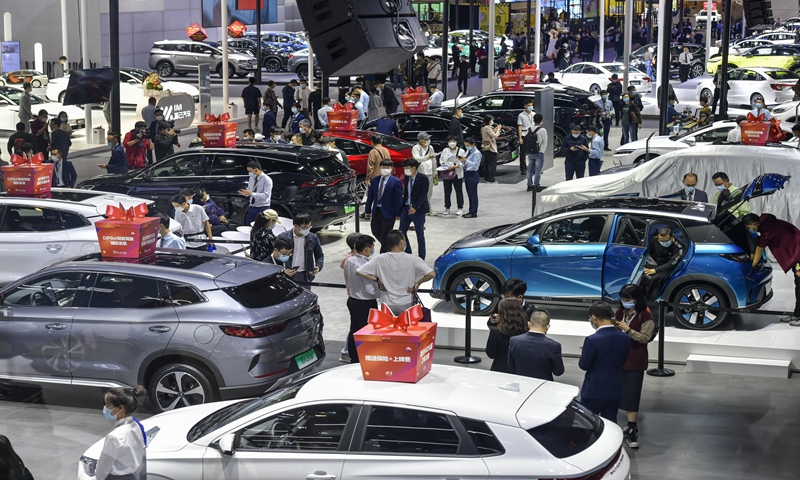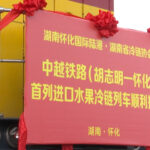The Ministry of Commerce (MOFCOM) and 16 other government departments on Thursday issued relevant policies to support the consumption of new-energy vehicles (NEVs) in China, including a study into the extension of the NEV purchase tax exemption policy.
MOFCOM said it will actively support the construction of charging facilities, guide charging pile operators to appropriately reduce charging service fees, and accelerate the construction of charging facilities in residential communities, parking lots, gas stations, highway service areas and freight hubs.
China will also remove unreasonable restrictions on second-hand car dealerships and support parallel automobile import businesses in port areas.
Parallel imports allow local auto dealers to directly purchase vehicles from foreign markets, and prices for parallel import automobiles, most of which are premium ones, are usually 15 percent lower than from dealers authorized by the automakers, according to the Xinhua News Agency.
With effective control of the epidemic and effective implementation of various policies and measures, automobile consumption will continue to recover and rapid growth is expected in the second half of the year, which will play a positive role in stabilizing the macroeconomic market, Sheng Qiuping, deputy minister of MOFCOM, said on Thursday at a press conference.
From January to May 2022, the sales volume of NEVs in China reached 4.61 million units, according to the China Passenger Car Association (CPCA). Meanwhile, China accounted for 59 percent of the world’s NEV sales, per the CPCA statistics.
The Ministry of Industry and Information Technology also said on Thursday that it will strengthen the monitoring and evaluation of industry operation, ensure the supply and price stability of automotive chips and upstream raw materials, and make every effort to ensure a smooth and stable industrial chain and supply chain.
Shu Jueting, a spokeswoman for MOFCOM, said on Thursday that the ministry will work hard to stabilize mass consumption.
Recently, MOFCOM and other relevant departments jointly issued several measures for invigorating automobile consumption, including support for the second-hand car market and optimization of parallel import policies.
“At the same time, we will actively work with relevant departments to bring NEVs and green building materials, green and smart home appliances to rural areas,” said Shu.
New-energy vehicles (NEVs) are seen at the 2022 Haikou International New-Energy Vehicle & Connected Mobility Show in Haikou, South China’s Hainan Province on January 6, 2022. About 70 domestic and foreign auto brands showcased their NEVs, intelligent connected vehicles, and systems, software and hardware related to autonomous driving. Photo: VCG




